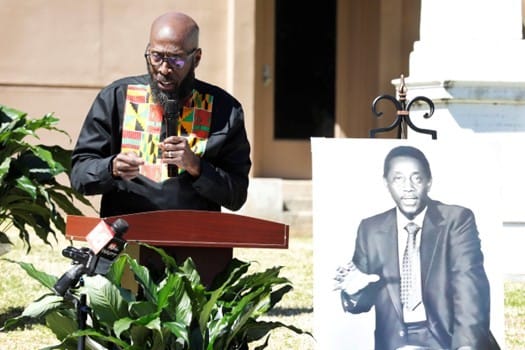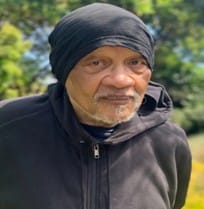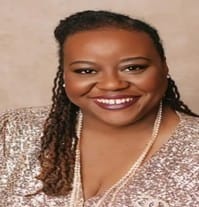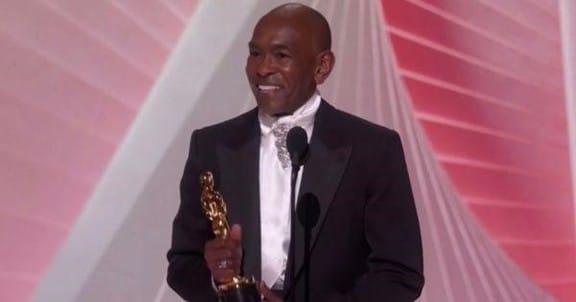By Lena Surzhko Harned, Associate Teaching Professor of Political Science, Penn State
(The CONVERSATION) “A president just disrespected America in the Oval Office. It wasn’t Zelenskyy.”
That was the verdict of the editorial team at the Kyiv Independent, one of Ukraine’s leading media outlets, on a remarkable spat in the Oval Office that played out on Feb. 28, 2025.
The online newspaper European Pravda characterized the “quarrel at the highest level” as a diplomatic failure, but added that it was “not yet a catastrophe.”
Some Ukrainians I have spoken to since the fractious encounter, during which Ukraine’s Volodymyr Zelenskyy was repeatedly hectored by U.S. President Donald Trump and Vice President JD Vance, have indeed characterized it as disastrous for the country. But for others, the incident has been calmly accepted as the new reality in U.S.-Ukraine relations.
There have been some questions directed at Zelenskyy – did he allow himself to be baited into an argument that could have real consequences? Should he have remained silent? But for the most part, the treatment of Ukraine’s president by Trump and Vance has produced a presumably unintended consequence: It has unified a war-weary Ukrainian people.
As one friend who has been displaced by war from the now occupied city of Nova Kakhovka told me, there has not been this level of mobilization and patriotism in three years.
Do experts have something to add to public debate?
We think so
‘The country needs unity’
This unity is seen in the response across Ukraine’s political divide. Petro Poroshenko, an often outspoken opponent of Zelenskyy and leader of the opposition party European Solidarity, said on March 1 that, to the surprise of many, he will not criticize Zelenskyy’s performance at the White House. “The country does not need criticism, the country needs unity,” he said in the video posted on X.
Anecdotally, even those Ukrainians who did not vote for Zelenskyy have told me that events in the Oval Office made them feel more supportive of Zelenskyy.
However, a sense of realism is sinking in over the shifting stance of the U.S. administration. Trump’s stated trust in Vladimir Putin and his conciliatory comments over Russian aggression – including a refusal to acknowledge Russian war crimes – have, for many Ukrainians, set low expectations that the White House can help achieve a quick and lasting peace. Yet, as Inna Sovsun of the opposition party Holos noted, “It was difficult to watch a president who’s been a victim of Russian aggression being attacked by the leader of the free world.”
Setting the record straight
The Feb. 28 meeting between the U.S. and Ukrainian leaders followed weeks of increasingly harsh Trump rhetoric toward Zelenskyy. Since being inaugurated on Jan. 20, Trump has called the Ukrainian leader a “dictator without elections,” claiming – incorrectly – that Zelenksyy had 4% approval ratings. He also indicted that the invasion by Russian troops in February 2022 was Ukraine’s fault.
Such comments had already made Ukrainians rally around Zelenskyy, who has a healthy 63% approval rating, according to the latest polls.
The ugly scenes in the Oval Office could see a further rallying around Zelenskyy, especially if he can successfully characterize his role in the dispute as that of defender of his people. Doing so would tap into growing popular resentment over the new U.S. administration’s apparent unwillingness to acknowledge Russian war crimes.
In the days leading up to the Zelenskyy-Trump meeting, the U.S. voted with Russia against a United Nations resolution condemning Russian aggression and opposed the wording of a draft G7 statement marking the third anniversary of the war, which depicted Russia as the aggressor.
Letting Putin off the hook
The angry exchanges in the Oval Office seemed to have been sparked by Zelenskyy’s objection to Trump’s assertion that Russian President Vladimir Putin is a man of his word.
That refusal to call out Putin – who faces an arrest warrant from the International Criminal Court – angers Ukrainians who have suffered Russian aggression for three years. To hammer that point home, Zekenskyy showed Trump and others in the Oval Office photos of Ukrainian prisoners of war who return from Russian captivity tortured and abused.
As Ukrainian human rights lawyer and Nobel Prize winner Oleksandra Matviichuk noted in a Feb. 17 speech, 65% of Ukrainians polled early in the conflict said their main disappointment in ending the war would be “impunity for Russian crimes.” Three years of conflict will have only hardened that sentiment – yet the U.S., under Trump’s leadership, looks increasingly willing to let Putin off the hook.
Defender of the nation – and truth
A large section of Ukrainian media – both traditionally pro- and anti-Zelenskyy alike – have since Feb. 28 portrayed the president in the role of a defender of both his nation and the truth.
He was, this framing has it, forced into the difficult position of having to set the record straight and challenge untrue statements in real time, and in front of the seemingly antagonistic leader of the world’s largest economy, whose support has been crucial in Ukraine’s attempt to repel the invading Russian army.
To some, keeping silent would have been tantamount to capitulation, but others have questioned Zelenskyy’s approach.
While still maintaining that Zelenskyy’s key message was correct, some Ukrainians have suggested that his emotional tone in the Oval Office was not constructive.
Opposition lawmaker Oleskiy Goncharenko suggested in an interview on CNN that Zelenskyy should have been more “diplomatic” and more “calm” given that the stakes were so high.
Meanwhile, there were also those who questioned the decision to hold such an important conversation in front of the press, especially without the use of professional translators who potentially could have tamped down the rhetoric and slowed the pace of the exchange. Thus, as Tymofiy Mylovanov, the adviser to the office of the president and head of the Kyiv School of Economics put it, some things could “have been lost in translation.”
‘Zelensky is our democratic leader’
So where does the Oval Office dispute leave both Zelenskyy and U.S.-Ukrainian relations?
In the aftermath of the dispute, Republican Sen. Lindsey Graham – who has been a staunch supporter of Ukraine – suggested that Zelenskyy should resign, the implications being that his relationship with Trump was so broken that his presence is now counterproductive for Ukraine’s priorities.
It is a line that hasn’t gone down well in Ukraine. Kira Rudyk, the leader of opposition party Holos, retorted that it was up to the Ukrainian people alone to decide on their leadership and future.
Moreover, to many Ukrainians the barrier to harmonious Ukraine-U.S. relations is not Zelenskyy, but Trump.
Mustafa Nayyem, who served in Zelesnkyy’s government, summed up the view of many Ukrainians by claiming in a social media post that the Trump administration “does not just dislike Ukraine. They despise us.” The “contempt is deeper than indifference, and more dangerous than outright hostility,” he added in the Feb. 28 post.
Intentional provocation
Serhii Sternenko, a Ukrainian activist lawyer and blogger, described the Oval Office spat as an intentional provocation on behalf of Trump to discredit Ukraine as an unreliable partner in the peace negotiations. Sternenko is not alone in his assessment. Journalist and blogger Vitaly Portnikov argued that the spat was the result of Trump’s unrealistic promise of ending the war quickly being confronted with the reality that perhaps Russia does not want to make any concessions. The thinking here is Putin has shown no indication that he will bend on his war goals, so for Trump, framing Zelenskyy as “not ready for peace” allows the U.S. president to walk away from his campaign promise without accepting defeat.














